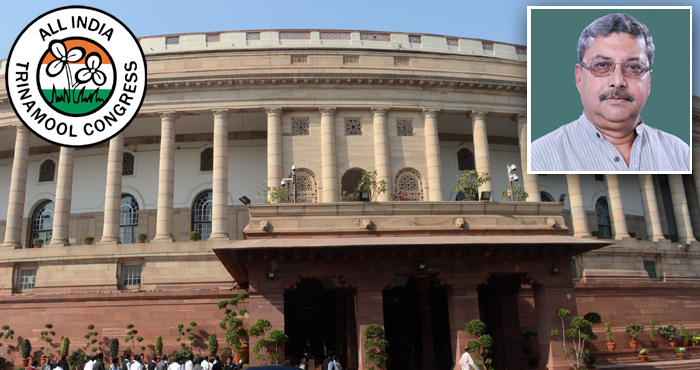January 2, 2018
Kalyan Banerjee speaks on The Ancient Monuments and Archaeological Sites and Remains (Amendment) Bill, 2017

FULL TRANSCRIPT
Hon Deputy Speaker Sir, I sincerely thank you for giving me the opportunity today tp speak on The Ancient Monuments and Archaeological Sites and Remains (Amendment) Bill, 2017. This Bill was required to be brought. Sir, law doesn’t remain in an island and law is needed for the purpose of the public interest so that the greater public interest is sub-served. This Bill has been brought really to meet the public interest.
Sir, in Kolkata, East-West Metro Rail project was stopped because of the prohibition made in the amended Act in 2010. There was a litigation in Calcutta High Court; possibly the honourable Minister knows about the entire fact and one of the honourable judges of the Calcutta High Court had taken great pain in the matter. At the time of hearing that petition, representative of the State Government’s Urban Development Ministry and the representative of the archaeological department were personally heard by that honourable judge.
Ultimately it was found that because of such prohibition the entire project – which had been commenced long back – was really stopped for the prohibition area. And if I am right then the judgement and the order of the honourable judge of the Kolkata High Court recommended that this law should be amended for greater public purposes. After passing of this Bill, the East-West Metro Rail project of Kolkata – which is another dream of our honourable Chief Minister – is going to be fulfilled.
The amendment which has been sought to be brought here, that the public works under Clause 2J (a), means construction works related to infrastructure, financed and carried out by any department or offices of the Central Government for public purposes, which is necessary for the safety and security of the public at large and emergent necessity is based on specific instance of danger to the safety or security of the public at large.
There is no resolvable possibility of any other viable alternative. “Viable alternative” – that’s the most catching word of this definition – to such construction beyond the limits of the prohibited area. This is actually, essentially felt, at the time of the hearing of that petition. The real practical problem was that there was no possibility of any other viable alternative. Therefore, when there is no alternative, then relaxation has been made by the Act itself to carry out the works for fulfilling the greater public interest. The law is meant to fulfill the public interest itself. That is the prime consideration.
Though Sir, I find that, the 1950 law which was amended earlier, in 2010, no one is disputing the proposition to this extent, and no one can dispute to the proposition to this extent, that ancient monument and archaeology sites have to be saved. No one can dispute that. But for the greater public interest, this was needed; it has been brought and I hope that after the Bill is passed that the Kolkata Metro East-West project would be completed as quickly as possible.
Kolkata can claim its pride, as the first Metro Railway project in our entire country was in Kolkata and it was a great success story. Thereafter, in different cities metro rail projects are coming up. Now again, it has been said that, a project like East-West Kolkata Metro is required. It had commenced but by reason of prohibition it was stopped but now it will be done. It will be completed.
The earlier prohibition, which I just pointed out – in the 2010 amendment – although certain relaxations were given but, it was: “It prohibits carrying out any public work or projects concerned to the public or other constructions in prohibited areas.” That is being substituted by the new definition of Clause 2J (a).
I am requesting the hon minister to kindly take care in the future that the power which it has now been given should not be abused by anyone. It should be taken care of. I have pointed out to you to my knowledge what are catching words of this Bill. Let us assume a case, that you need to construct accommodations, buildings for the central government offices. That would also be of public interest, but do not state these clauses up to that.
Therefore, whenever power would be exercised in the future, the central government should be (first) the competent authority and (second) should apply their mind to the fullest extent that this power is not going to be abused. It should be done only in cases of emergencies, greatest public interest and when alternative areas are not available.
With this Sir, I am concluding and wishing everyone that they should remain well. Happy New Year to every member of this House (because today is my first speech of the year).
Thank You.
